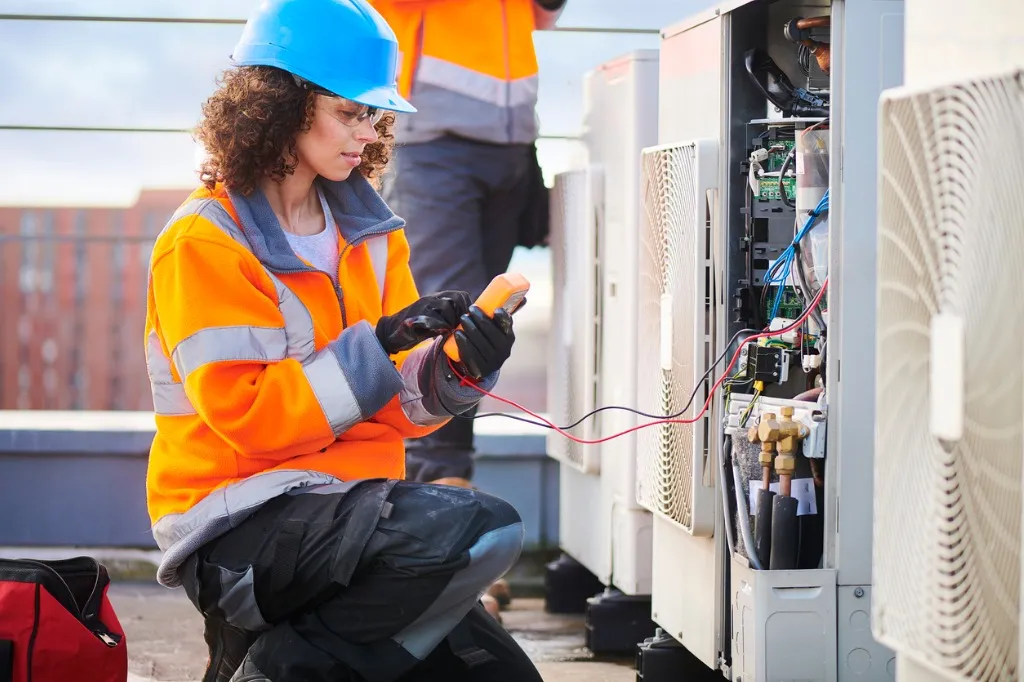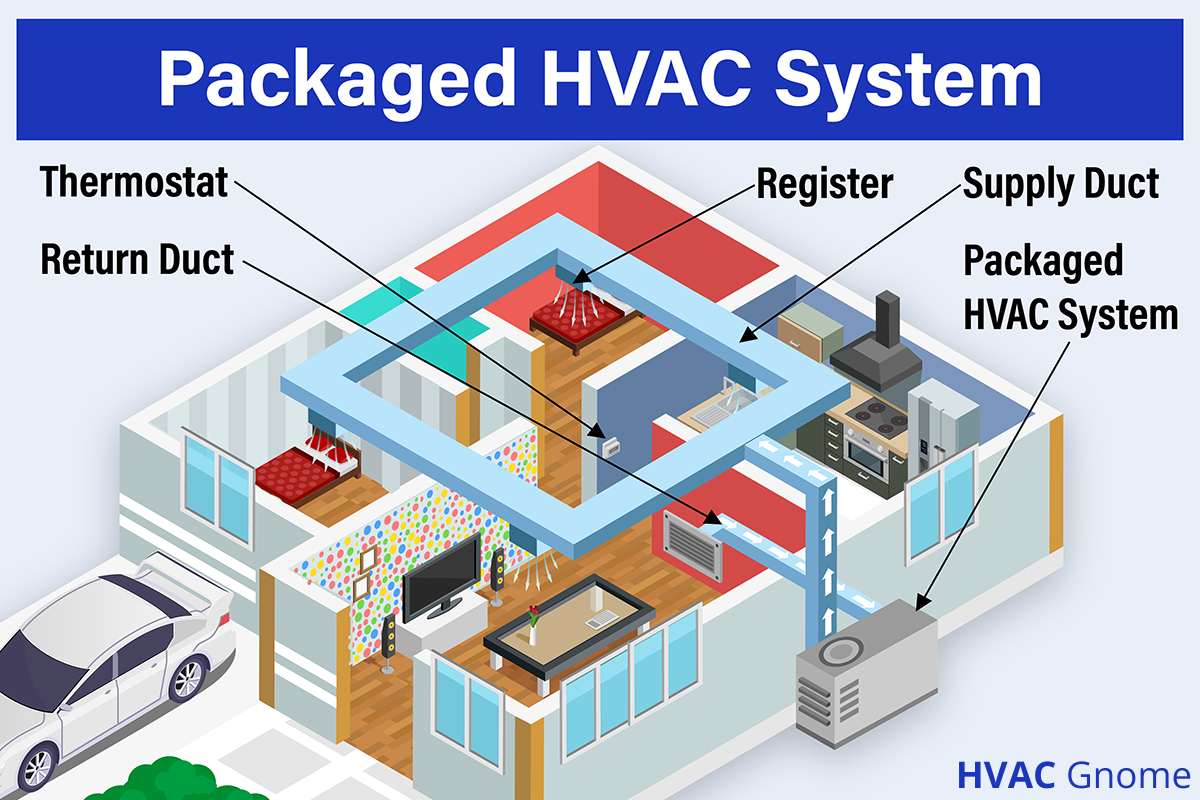An In-Depth Check Out Cooling And Heating Providers and Their Influence On Energy Efficiency and Price Financial Savings
The duty of a/c solutions in enhancing energy efficiency and accomplishing expense financial savings is extra critical than ever, as homeowners and services seek sustainable remedies in a significantly eco-conscious world. With technical improvements like smart thermostats and high-efficiency elements, the capacity for maximizing system performance is vast. Yet, real impact of these technologies depends largely on routine upkeep and proactive problem management. As we explore the intricate partnership in between HVAC systems and functional expenses, consisting of the shift towards eco pleasant alternatives, the question develops: how can these strategies be efficiently executed to maximize both ecological and economic benefits?

Significance of Heating And Cooling Equipments
cooling and heating systems are a crucial component of modern-day structures, playing an important role in keeping comfortable and healthy and balanced indoor atmospheres. These systems, incorporating heating, air, and ventilation conditioning, are essential for managing temperature level, humidity, and air top quality, thus ensuring the wellness of owners. Efficient cooling and heating systems contribute considerably to producing an ideal interior environment, which is important for both business and household spaces.
In commercial buildings, HVAC systems are essential to supplying a secure and efficient atmosphere. By managing indoor environment conditions, these systems help protect against the development of mold and the spread of air-borne pollutants, therefore protecting the wellness of staff members and consumers. Additionally, in domestic setups, HVAC systems improve living conditions by using consistent thermal comfort and improving interior air quality, which is crucial for total health.
In addition, the style and upkeep of HVAC systems have a direct influence on power consumption and functional expenses. Properly created and preserved systems can significantly reduce power usage, bring about minimized energy bills and a smaller carbon footprint. The performance of these systems thus plays an important duty in advertising sustainability and energy conservation within buildings, highlighting their importance in the contemporary architectural landscape.
Developments in Heating And Cooling Modern Technology
Advancement in heating and cooling innovation is transforming the means structures handle interior climates, ushering in a brand-new era of performance and control. Current improvements have actually concentrated on optimizing power intake while boosting customer convenience. One remarkable advancement is the assimilation of wise thermostats, which make use of synthetic intelligence to find out occupancy patterns and adjust temperatures as necessary, reducing unneeded power use.
Variable Cooling Agent Circulation (VRF) systems represent another substantial leap forward. These systems enable precise temperature control in various areas of a building, boosting convenience and decreasing energy waste. VRF technology is particularly valuable for big business areas, providing flexibility and scalability.
Furthermore, the development of Internet of Things (IoT) devices has transformed heating and cooling systems into interconnected networks with the ability of real-time data collection and analysis. This connection enables anticipating upkeep, making sure systems operate at peak performance and lessening unforeseen downtime.
Moreover, developments in products and design, such as making use of high-efficiency coils and compressors, have improved general system performance - Heating Contractor. The fostering of ecologically pleasant cooling agents also highlights the sector's commitment to sustainability
These technical technologies are crucial in minimizing operational prices and environmental impact, setting new criteria for constructing environment management.
HVAC Upkeep and Efficiency
Making sure optimal performance of cooling and heating systems extends past technical advancements; it additionally hinges on efficient upkeep techniques. Normal maintenance is essential for maintaining efficiency, reducing power usage, and expanding the lifetime of heating and cooling systems. The main goal is to make sure that all components operate at their peak capacity, consequently lessening power wastefulness and keeping regular indoor convenience degrees.
Routine upkeep jobs, such as cleaning or changing air filters, checking cooling agent degrees, and examining ductwork for leaks, are necessary for protecting against unnecessary pressure on the system. Clogged or dirty filters can block air flow, causing the system to work harder and consume even more power. Likewise, inadequate refrigerant degrees can lower cooling down effectiveness, resulting in higher functional expenses.
Additionally, periodic evaluations by certified specialists can determine prospective issues before they Visit Website intensify into costly fixings or system my sources failings. These assessments typically include checking electric connections, adjusting thermostats, and making sure the total stability of the HVAC system. By attending to minor troubles early, businesses and home owners can avoid unanticipated malfunctions and enhance energy efficiency.
Cost-Effective Cooling And Heating Solutions
For those aiming to obtain the most out of their heating, air, and ventilation conditioning systems without damaging the financial institution, discovering economical a/c services can make a considerable difference. One instant action is to spend in programmable thermostats, which permit users to set details temperature levels for various times of the day, enhancing energy usage and minimizing unnecessary usage. By automating temperature level adjustments, house owners can attain substantial cost savings on power costs.
Routine upkeep is an additional vital component of affordable heating and cooling monitoring. Making certain that filters are cleaned or changed consistently, ductwork is secured, and devices are serviced by specialists can stop pricey fixings and improve system durability. Precautionary maintenance not just maintains system efficiency but also helps in avoiding unforeseen breakdowns that can result in pricey emergency repairs.
Furthermore, retrofitting existing systems with energy-efficient elements, such as variable rate electric motors or high-efficiency compressors, can be a prudent investment. These upgrades enhance functional efficiency, reduce power usage, and can typically be carried out at a fraction of the cost of a complete system substitute.
Environmental Influence Reduction
Decreasing the environmental influence of Heating and cooling systems is critical in today's quest of lasting living. A/c systems are considerable contributors to power consumption, accounting for almost 40% of energy use in commercial buildings.
Technical developments in HVAC style you can find out more and procedure, including the assimilation of clever thermostats and energy-efficient warmth pumps, are crucial in reducing carbon footprints. These developments enable enhanced power usage, lessening waste and improving general system performance. Furthermore, taking on routine upkeep practices guarantees HVAC systems operate at peak effectiveness, additional cutting unneeded power usage.
Additionally, using eco-friendly cooling agents is crucial, as traditional refrigerants, like CFCs and HCFCs, have actually been eliminated because of their ozone-depleting homes. Modern options, such as hydrofluoroolefins (HFOs), offer lowered environmental risks, aligning with global environmental protocols. By welcoming these sustainable techniques, heating and cooling solutions can play a transformative duty in reducing ecological effects, advertising power efficiency, and promoting an extra sustainable future.
Verdict

In addition, the design and upkeep of Heating and cooling systems have a straight impact on power consumption and functional expenses. Regular upkeep is critical for maintaining efficiency, lowering power usage, and prolonging the life period of A/c systems. HVAC systems are significant factors to power intake, accounting for nearly 40% of energy usage in commercial buildings. In addition, adopting regular upkeep methods ensures Cooling and heating systems run at peak efficiency, more cutting unnecessary energy intake.
The shift to eco pleasant Heating and cooling systems further promotes and lowers operational prices sustainability. (Heating Contractor)